Anyone can become a target for scammers. We’ve all heard stories about people who have fallen for scams and lost unbelievable amounts of money. The scammers certainly don’t pull their punches when it comes to the elderly, either.
According to the IC3’s Elder Fraud Report 2021, last year more than 92,000 people over the age of 60 fell for scams, reporting losses of $1.7 billion. Many of these seniors lost all their life savings, and will most likely be unable to recover financially.
In this post, we’ve listed the top 5 scams elderly people in the United States currently face. We’ve also included some excellent tips to ensure you don’t fall for any of them at the end of the article, too.
Top 5 Scams Targeting Seniors
#1 — Tech Support Scams
Impersonating tech companies or customer support departments of online services, scammers contact you and try to convince you that there are technical issues with your device/account.
If you accidentally visit a malicious website, you could come across a pop-up notification that says your device is infected with malware and you need to run a scan.
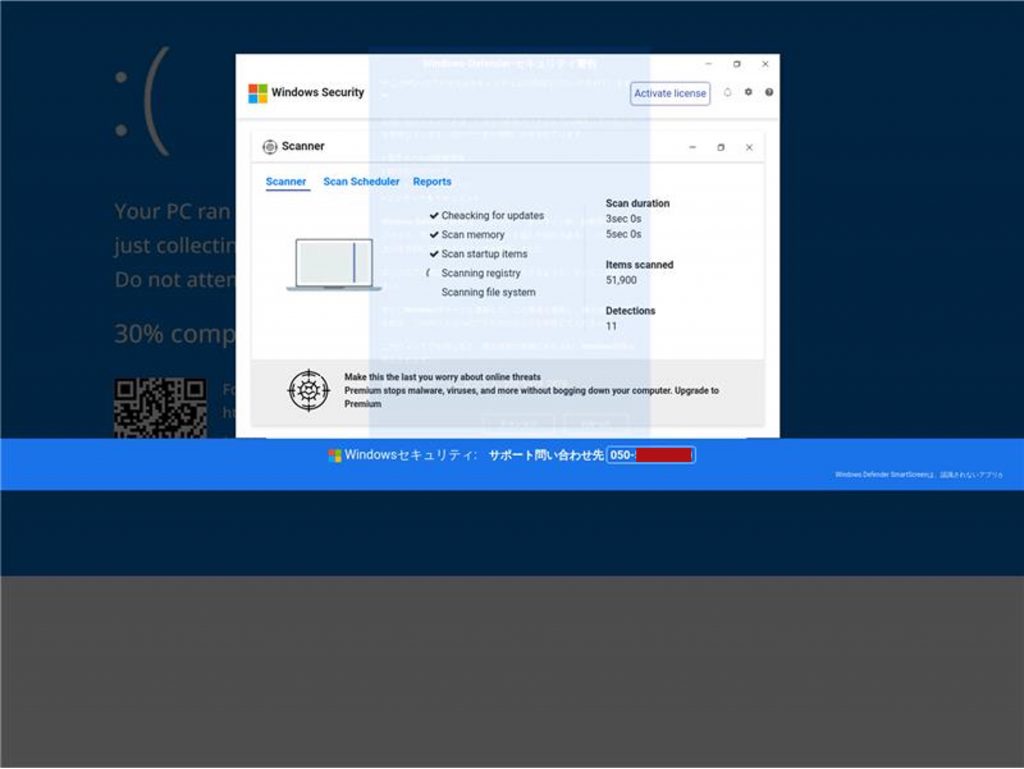
Scammers might put the notification in fullscreen mode to “lock” your screen. As you’re panicking, they instruct you to dial a number to get help. Over the phone, they will encourage you to grant them remote access to your device.
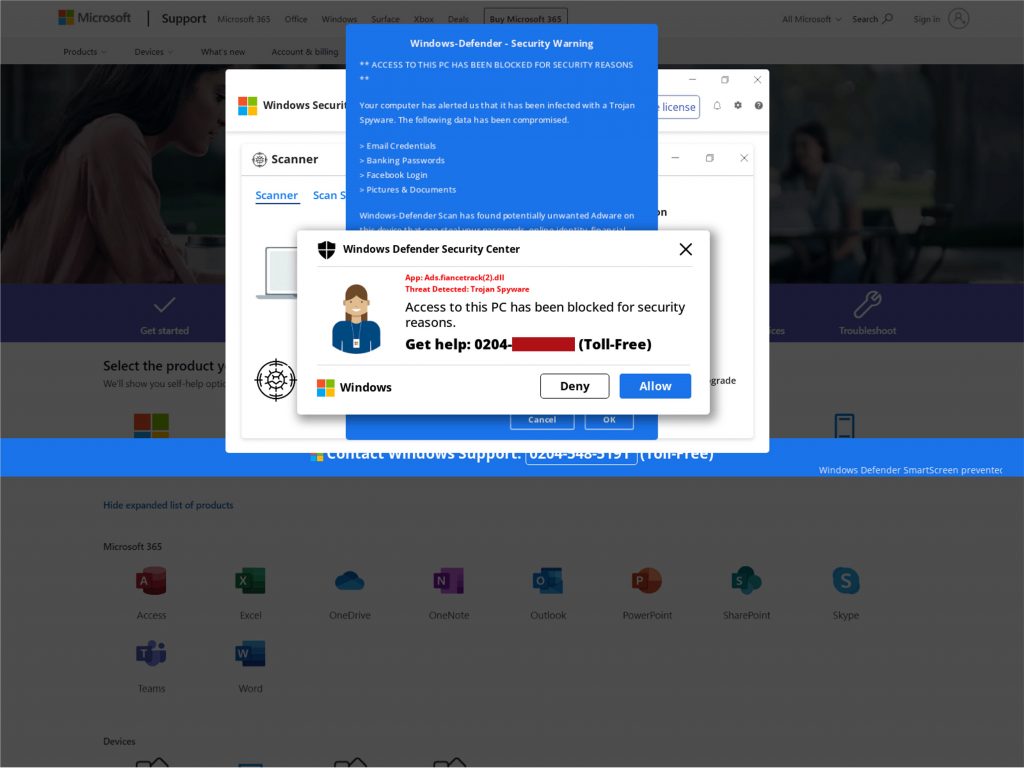
Scammers can thus download real malware and steal any credentials/personal information stored on your device.
Tech support scams also circulate via text message and email. Scammers include malicious links in such messages and prompt you to click on them to solve a fake technical issue, “verify” your account, or whatever other bogus reason they think you might fall for. Below is an example.
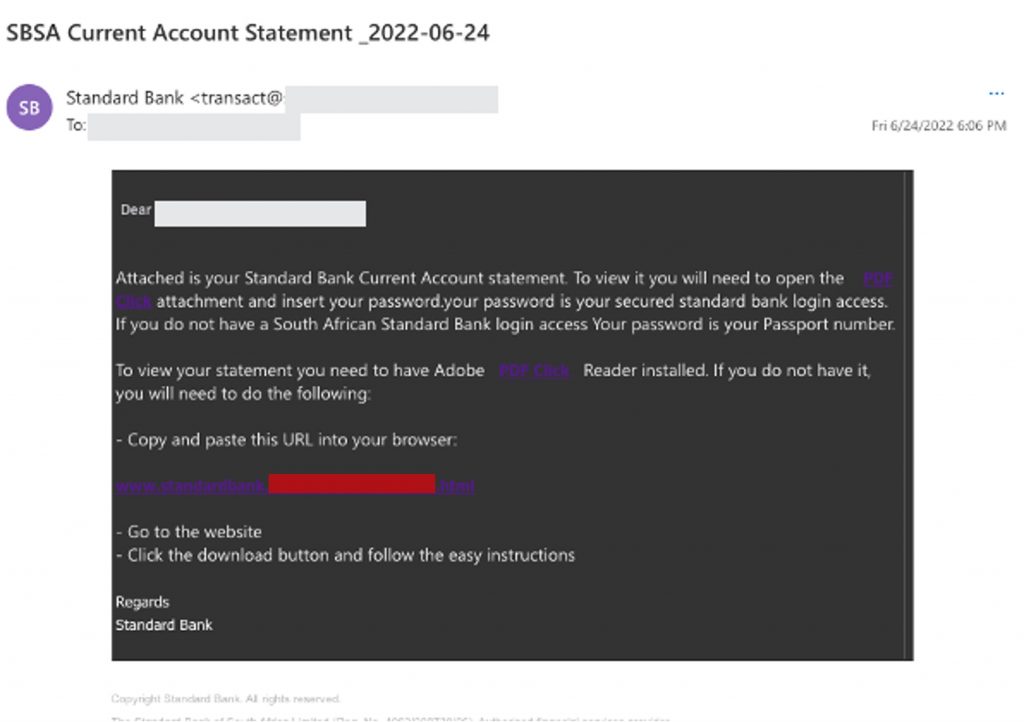
You will often be led to a fake login page and asked to enter an email address and password. Any data entered will end up in the scammers’ hands, and they can thus take control of any online accounts associated with that login information.
#2 — Non-payment / Non-delivery Scams
We’ve reported on delivery scams several times before. Posing as delivery companies like FedEx, USPS, and DHL, scammers send you fake delivery notifications via text message or email:
- William Your Fedex-delivery is scheduled for tomorrow at [time]PM. Let our driver know if you are home: <URL>
- USPS NOTICE: Your order has been shipped. Please track your order and let us know when we can come by <URL> Arrival ETA: 2-3days
- Arriving today: / your Amazon / package. More info at : <URL>
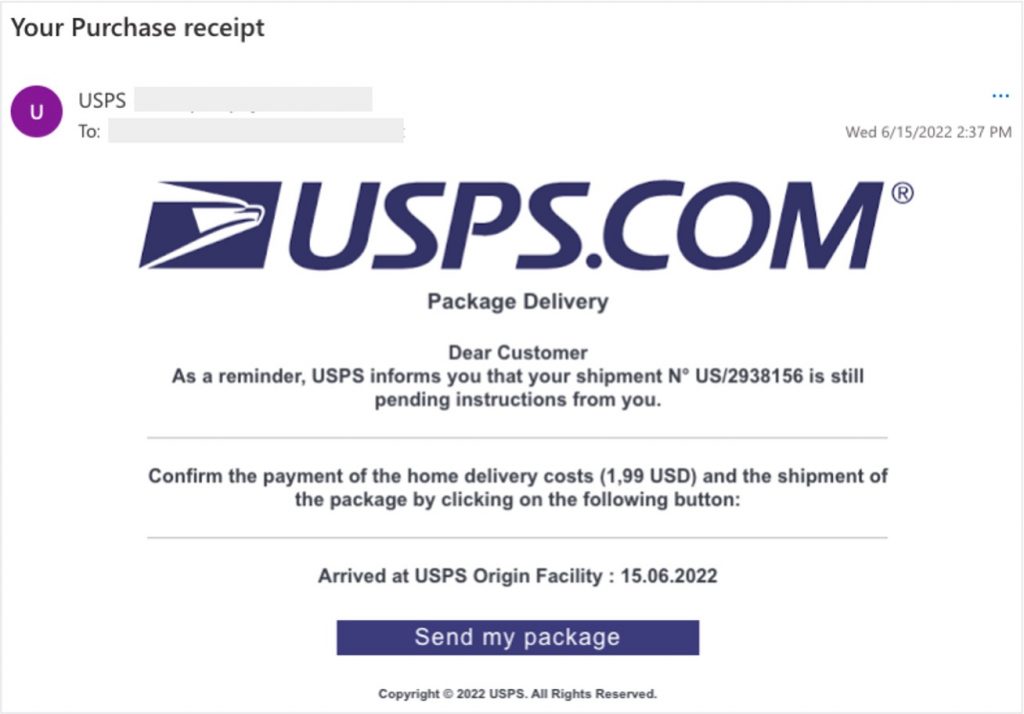
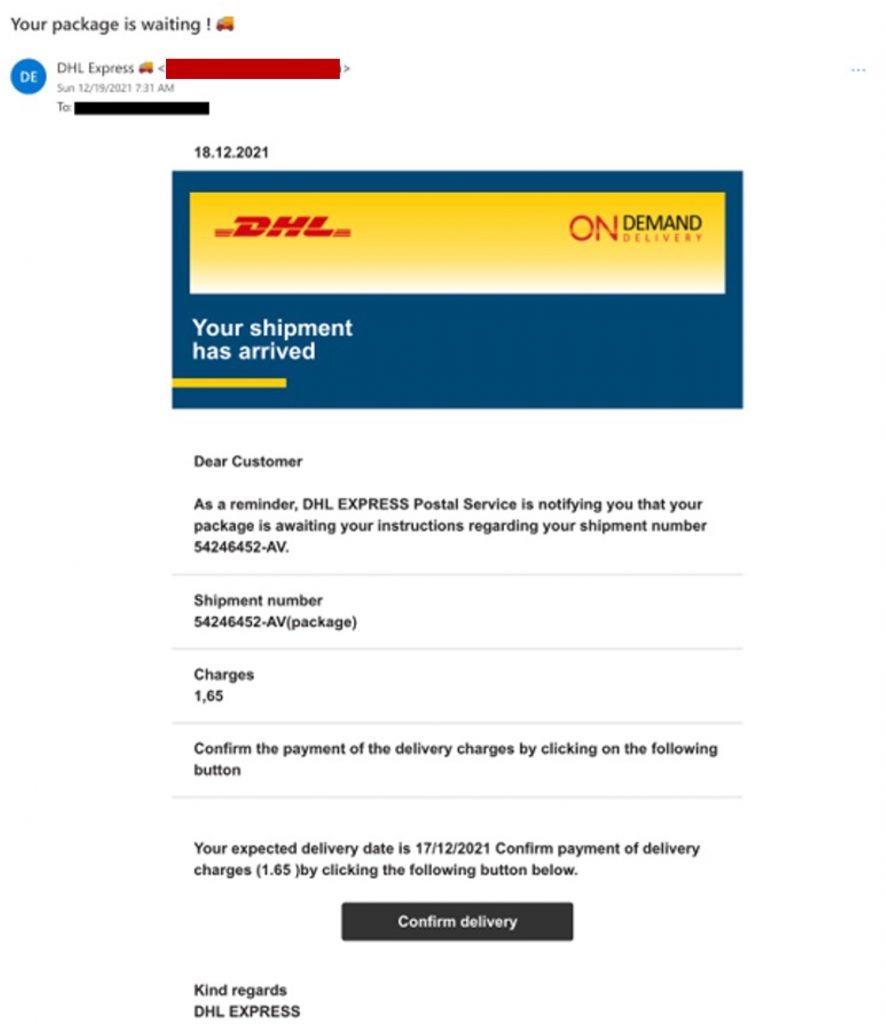
The attached links lead to fake login pages where you must submit login credentials. Again, they can use this information to take control of any online accounts associated with it, potentially stealing your money and identity. Be careful!
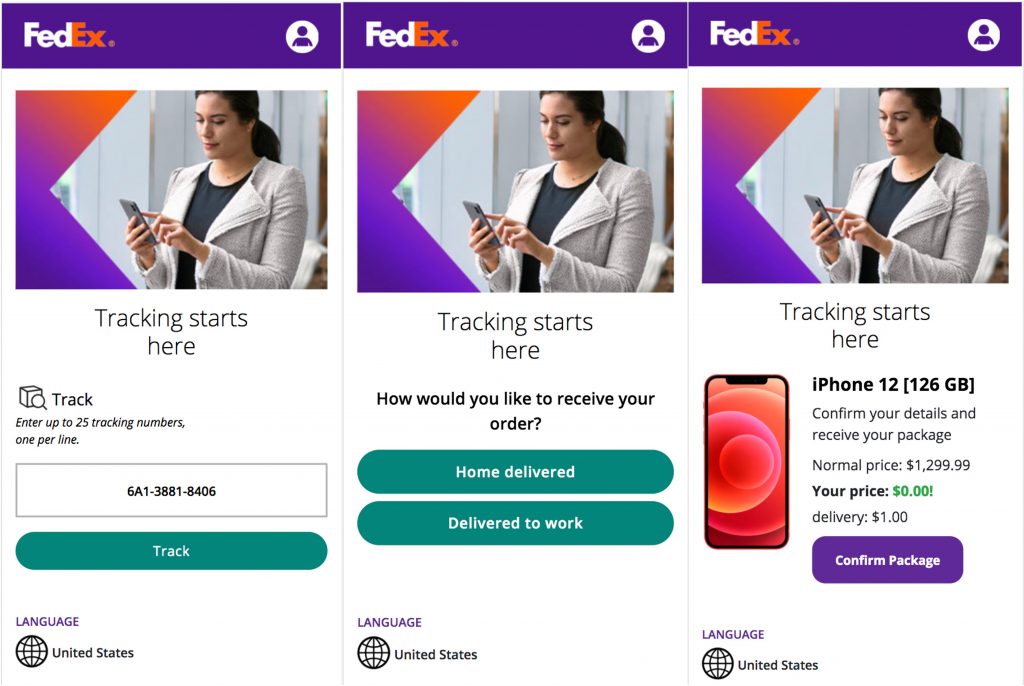
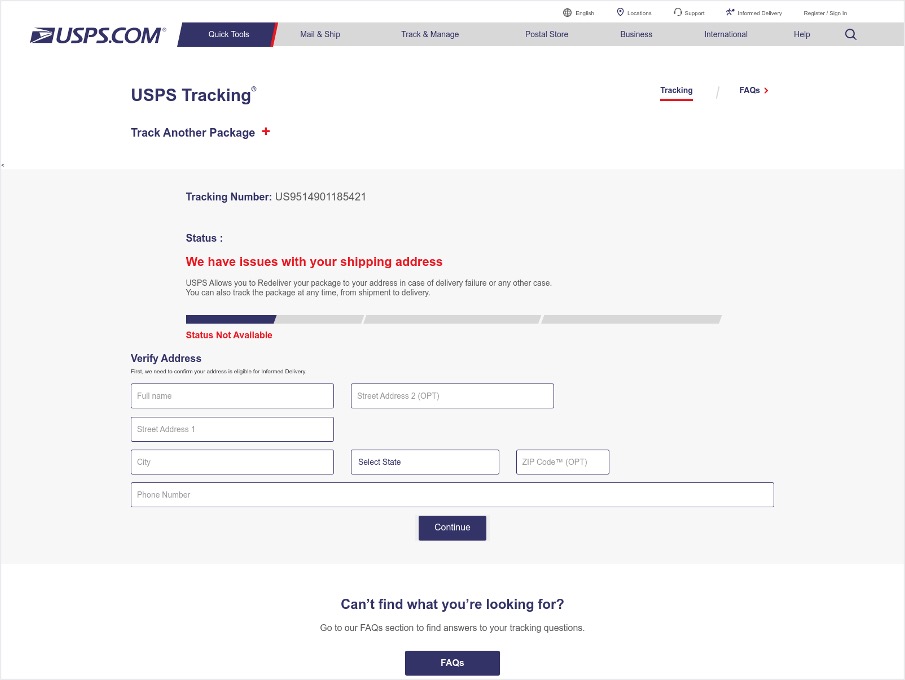

#3 — Confidence Fraud / Romance Scams
We can all agree that messages like the one below could be quite tempting to a lonely person.

- I Wanna crazzy nights with you. we can make it. You can get my cell number and location from here: <URL>
- Do you want a date night with Elora? She does. She’s deperate and eager to be pleasured! View her message and reply now: <URL>
If someone were to click on one of the included links, they would be led to a romance scam page such as the one below.

Then, they would be redirected to a survey page that requests their personal information, including their email address, password, and even credit card details.
Scammers also use emails to spread links to scam adult websites. They might impersonate well-known companies like Tinder, but sometimes they just send an email containing nothing more than a URL.


The tactics are the same: they try to direct people to scam adult survey pages where they could end up exposing their sensitive data. Scammers can use this stolen data to steal people’s money as well as their identities.

#4 — Lottery / Sweepstakes / Inheritance Scams
Free gifts and prizes are almost always too good to be true! As we’ve written many times before, in a lottery scam, scammers prompt you to click on phishing links:
- Join the Heartline Study by J&J in collaboration with AppIe. Get r-e-w-a-r-d-s valued @ 150. oo or more. <URL>
- Your number was randomly selected online and won 2.8m in the 2022 Nations Lottery. Visit <URL> and confirm using the winning ref. No: NL22WIN1
The links will take you to fake online survey pages that say you can get a reward after completing one of the questionnaires.

Eventually, you’ll need to provide your credit card number, its expiration date, and even the CVC code before you can get your pretend gift delivered. Don’t get scammed!

In the email version, scammers will ask you to reply with your personal information:
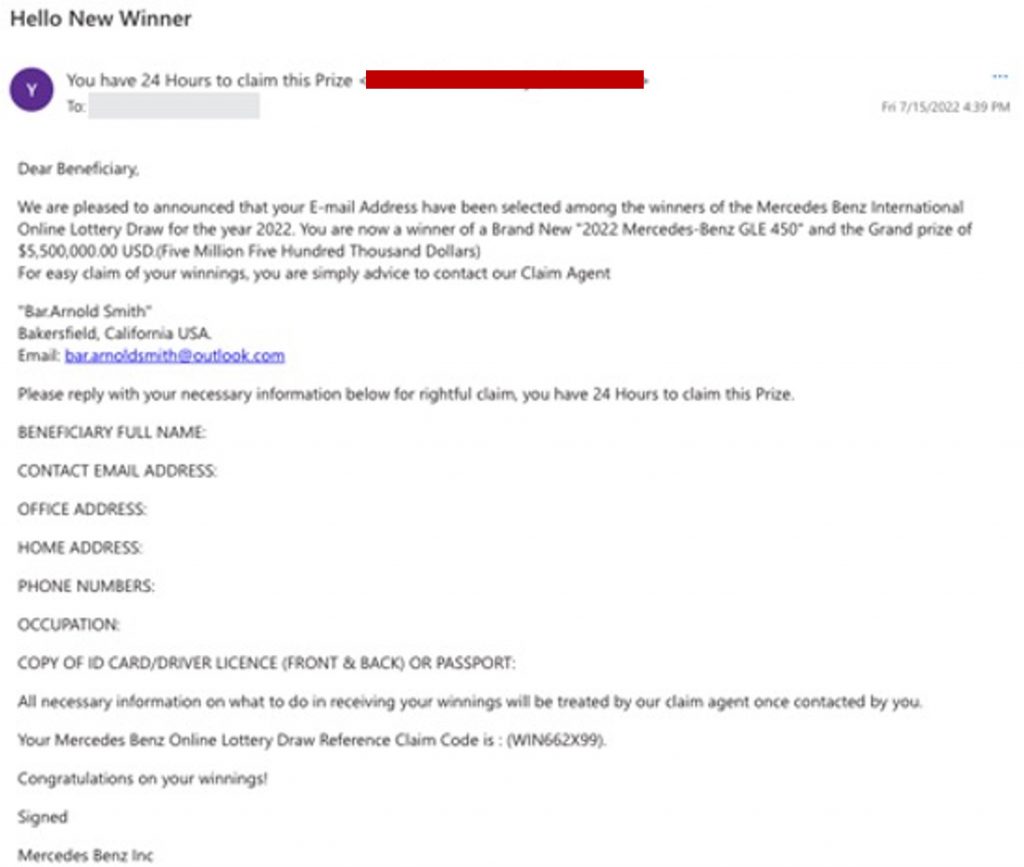
The goal of inheritance scams is the same. Stating that you’re the beneficiary of an inheritance, scammers urge you to reply to their email. However, eventually, they will request your personal information. Beware!

#5 — Business Email Compromise (BEC) Scams
To put it simply, a BEC scam is when a scammer pretends to be your co-worker or one of your business email contacts and sends you emails prompting you to wire them money or provide sensitive or confidential information.
So how do these scams work? Here are some tactics they may use:
- Bogus Invoice Scheme: Scammers pretend to be a foreign supplier and request fund transfers for payments to its account.
- CEO Fraud: Scammers pose as a CEO or high-level executive of a company and send an email to employees in finance, requesting them to transfer money to them.
- Account Compromise: A employee’s email account is hacked and used to request invoice payments to vendors listed in their email contacts.
- Attorney Impersonation: Scammers pretend to be a lawyer in charge of crucial and confidential matters.
- Data Theft: Scammers target employees in human resources to obtain personally identifiable information (PII) or tax statements of employees and executives. They then utilize the data for future attacks.
Below are some examples.
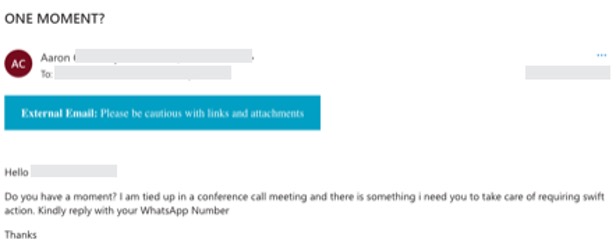

7 Tips to Protect Yourself
- If you’re suspicious of a scam, calm down and never act too quickly.
- Remember, free gifts and prizes are always a major red flag.
- Double-check people’s contact details and website URLs.
- Reach out to official websites and support pages directly for help if in doubt.
- Use strong passwords and enable two-factor authentication (2FA) to protect your online accounts.
- If you’ve come across a scam, file a report with the FBI’s Internet Crime Complaint Center to help out others.
- NEVER click on links or buttons from unknown sources! Use Trend Micro ScamCheck to detect scams with ease — for FREE!
After you’ve pinned the ScamCheck extension, it will block dangerous sites automatically! (Available on Safari, Google Chrome, and Microsoft Edge).
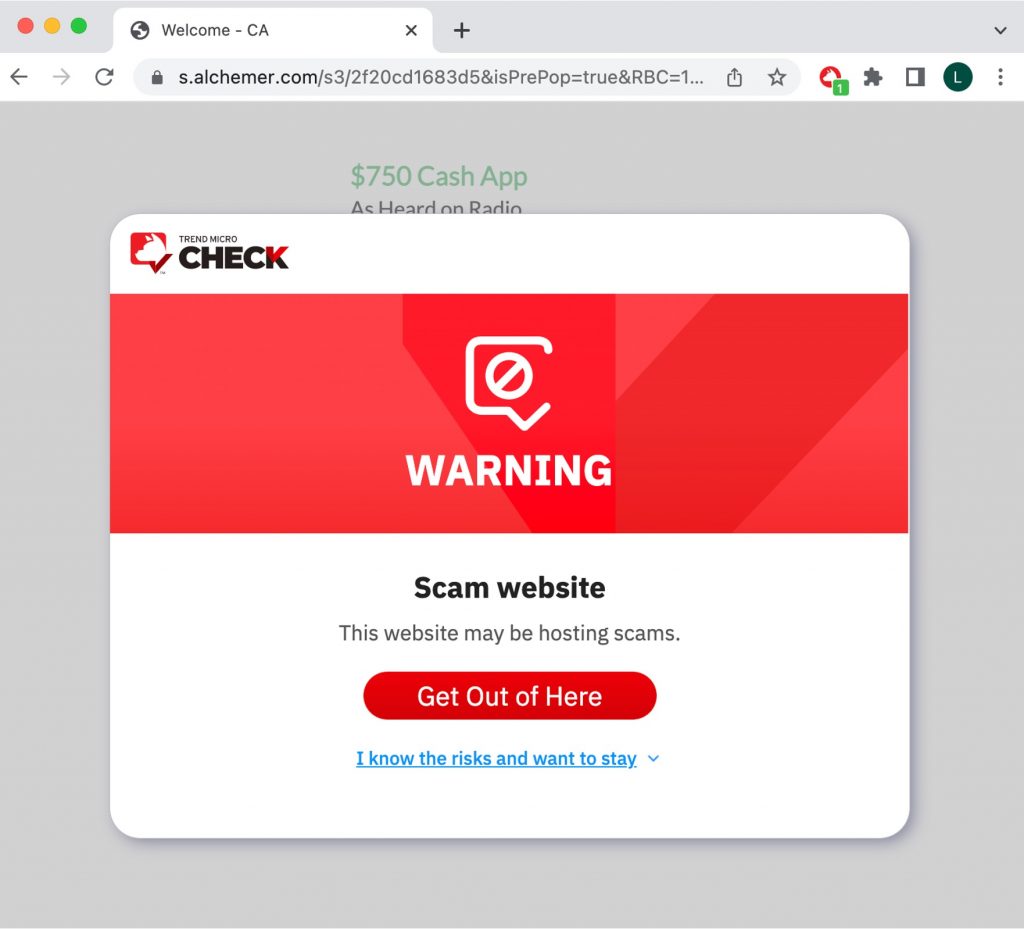
You can also download the ScamCheck mobile app for 24/7 automatic scam and spam detection and filtering. (Available for Android and iOS).
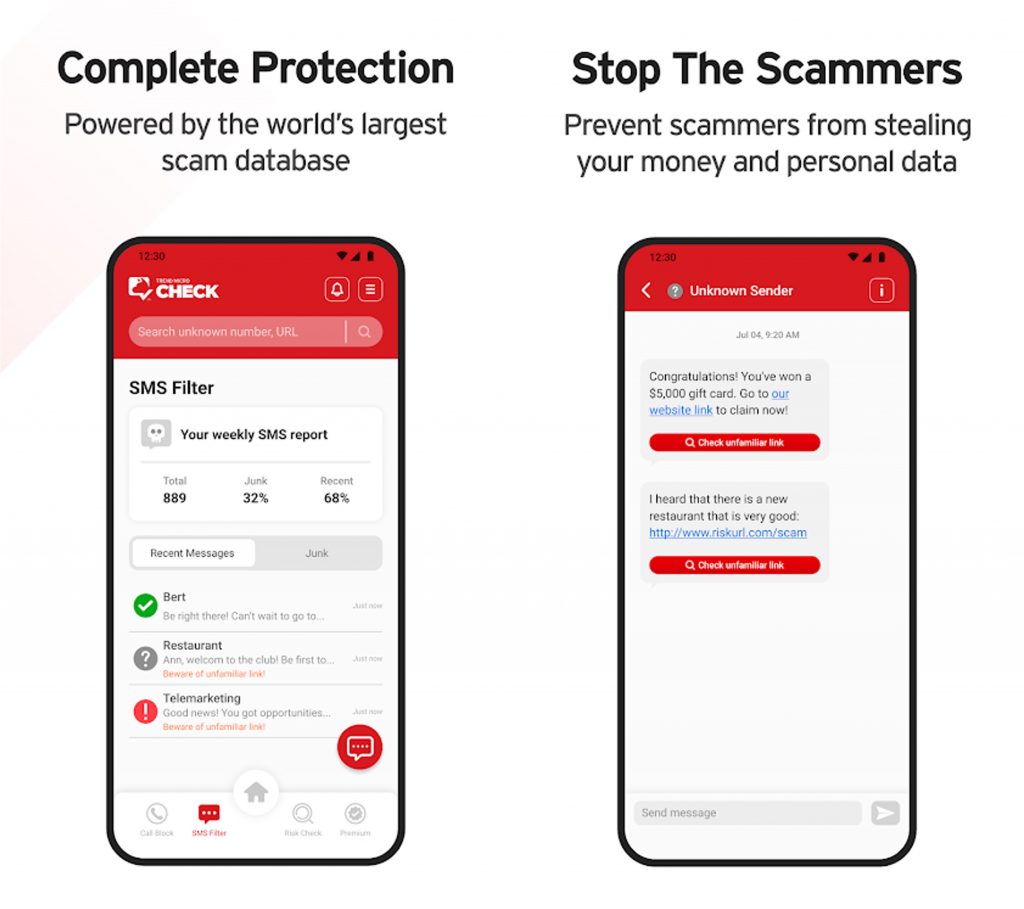
If this article’s been of use and/or interest to you, please do SHARE with friends and family and help keep the online community informed and protected!
